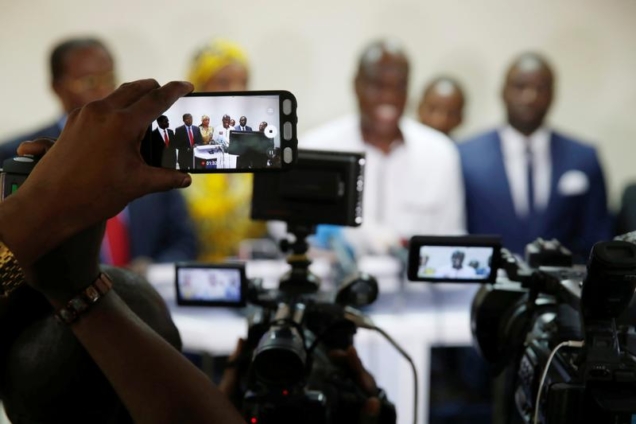The issue of implementing a licensing regime for journalists in Ghana has been a long-standing debate that merits renewed attention. The absence of a consensus on this matter and its subsequent non-implementation could be detrimental to the country.
Like developed nations such as the United Kingdom and the United States, Ghana does not have a specific licensing system for journalists. In these countries, press freedom is considered a fundamental right, allowing journalists to operate without the need for a license.
This absence is often viewed as a safeguard, promoting independent reporting free from direct government control or censorship, fostering investigative journalism and the open exchange of information.
The Potential Benefits of a Licensing System
While the absence of a licensing regime is perceived positively, the adoption of one in Ghana could yield several benefits. First and foremost, it could elevate professional standards by establishing specific criteria for obtaining a license, including education, experience and ethical guidelines. This, in turn, would empower journalists to carry out their responsibilities more responsibly.
Furthermore, a licensing system could instill media accountability by holding journalists responsible for their work. Violations of ethical standards or unprofessional behaviour could result in consequences, such as license revocation, serving as a deterrent against unethical practices.
Moreover, a licensing system might contribute to quality control within the media industry, enhancing the credibility of media organizations. By ensuring that journalists meet certain educational and professional criteria, there is a potential for an overall improvement in the quality of journalism.
Safeguarding Public Interest and Journalists’ Rights
Besides, the implementation of a licensing regime could protect public interest by preventing the dissemination of false information or malicious content. Journalists with licenses may be more likely to provide accurate and reliable news, contributing to an informed citizenry.
Again, a licensing system would solidify the legal recognition and rights of journalists, providing them with certain privileges such as access to official events, protection of sources, and legal support in case of conflicts arising from their journalistic activities.
A Closer Look at Concerns
However, it is crucial to acknowledge the potential concerns associated with licensing regimes. One significant worry is the possibility of the system being exploited to restrict freedom of the press. Governments or regulatory bodies may misuse licensing to control or censor journalists, particularly those critical of the authorities.
There is also a risk of subjectivity and bias in the licensing process, with decisions influenced by political or personal agendas, potentially leading to discrimination against certain individuals or media outlets.
Moreover, the fear of losing a license might induce self-censorship among journalists, hindering their ability to cover controversial topics or engage in critical reporting. This could have a chilling effect on investigative journalism and freedom of expression.
Striking a Balance
In conclusion, while a licensing regime for journalists aims to raise professional standards and accountability, its effectiveness depends on implementation and the broader political context. Striking a delicate balance between promoting responsible journalism and safeguarding press freedom is paramount.
Countries such as Ghana contemplating or implementing such regimes must carefully weigh the potential benefits against the risks and work to ensure transparency and fairness in the licensing process.
Latest Stories
-
Expansion Drive: Takoradi Technical University increases faculties
3 hours -
SHS heads demand payment of outstanding funds before reopening of schools
4 hours -
We thank God for the 2024 general elections – Akufo-Addo
4 hours -
Coconut Grove Beach Resort marks 30 years of excellence with memorable 9 lessons & carols service
4 hours -
WAFU B U-17 Girls’ Cup: Black Maidens beat Nigeria on penalties to win inaugral tournament
5 hours -
Real Madrid beat Sevilla to keep pressure on leaders Atletico
6 hours -
Liverpool put six past Spurs to go four points clear
6 hours -
Manchester United lose 3-0 at home to Bournemouth yet again
6 hours -
CHAN 2024Q: ‘It’s still an open game’ – Didi on Ghana’s draw with Nigeria
6 hours -
CHAN 2024Q: Ghana’s Black Galaxies held by Nigeria in first-leg tie
7 hours -
Dr Nduom hopeful defunct GN bank will be restored under Mahama administration
8 hours -
Bridget Bonnie celebrates NDC Victory, champions hope for women and youth
8 hours -
Shamima Muslim urges youth to lead Ghana’s renewal at 18Plus4NDC anniversary
9 hours -
Akufo-Addo condemns post-election violence, blames NDC
9 hours -
DAMC, Free Food Company, to distribute 10,000 packs of food to street kids
10 hours

